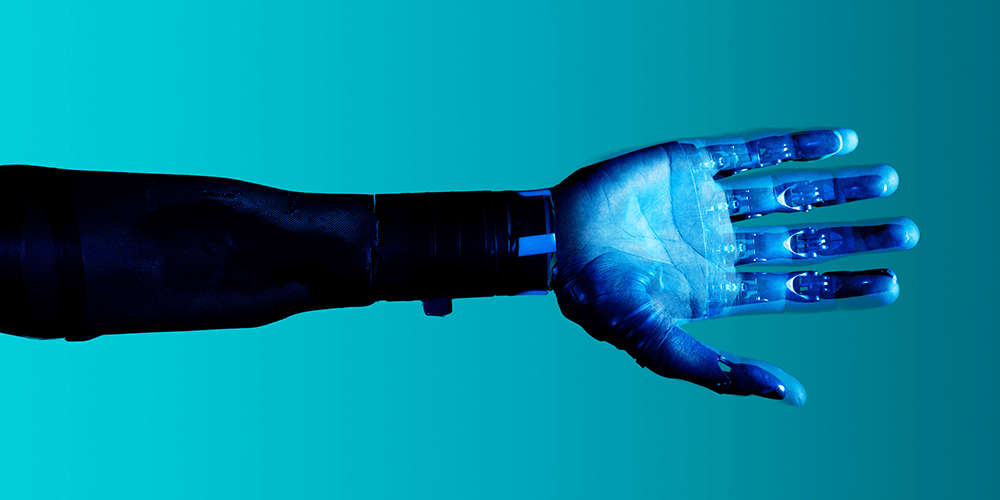- Solutions
- Products
- Community
- Resources
- Company
Create incredible candidate experiences that communicate your brand, mission, and values with recruitment marketing solutions.
Learn moreCommunicate effectively and efficiently with the candidates that can drive your business forward.
Learn moreSelect the right candidates to drive your business forward and simplify how you build winning, diverse teams.
Learn moreHelp your best internal talent connect to better opportunities and see new potential across your entire organization.
Learn moreCommunicate collectively with large groups of candidates and effectively tackle surges in hiring capacity.
Learn moreAccess tools that help your team create a more inclusive culture and propel your DEI program forward.
Learn moreRebound and respond to the new normal of retail with hiring systems that are agile enough to help you forge ahead.
Learn moreAccelerate the hiring of key talent to deliver point of care and support services that meet and exceed your promise of patient satisfaction.
Learn moreAttract and engage candidates with technical competencies, accelerate hiring for much-needed skills, and advance expertise within your valued workforce.
Learn moreSimplify how you recruit finance, insurance, and banking candidates with a unified platform built to match top talent with hard-to-fill roles.
Learn moreYour business strategy depends on your people strategy. Keep both in lockstep with the iCIMS Talent Cloud.
Learn moreBuild an engaging, high-converting talent pipeline that moves your business forward.
Learn moreDeliver the innovation your talent team needs, along with the global scale and security you demand.
Learn moreDeliver tailored technology experiences that delight users and power your talent transformation with the iCIMS Talent Cloud.
Learn moreThe #1 ATS in market share, our cloud-based recruiting software is built for both commercial and large, global employers.
Learn more Talk to salesAttract the best talent for your business with powerful, on-brand career websites that excite candidates and drive engagement.
Learn more Talk to salesBuild talent pipelines, engage candidates with multi-channel marketing campaigns, and use machine learning to automatically surface the right talent for the job.
Learn more Talk to salesEmpower candidates with automated self-service, qualification screening, and interview scheduling through an AI-enabled digital assistant.
Learn more Talk to salesSimplify employee onboarding with automated processes that maximize engagement and accelerate productivity.
Learn more Talk to salesCompliment your sourcing and engagement efforts with award-winning lead scoring and advanced campaign personalization.
Learn more Talk to salesImprove employee experience, retention, and reduce internal talent mobility friction with the iCIMS Opportunity Marketplace.
Learn more Talk to salesVerify skills with game-changing levels of automation and simplicity to improve the quality of hire at scale.
Learn more Talk to salesModernize, streamline, and accelerate your communication with candidates and employees.
Learn more Talk to salesTransform the talent experience by showcasing your authentic employer brand through employee-generated video testimonials.
Learn more Talk to salesGet robust analytics that help you make sense of your data and illuminate your talent pool.
Learn moreSimplify recruiting, dynamically engage talent, and reduce hiring bias with job matching and recruiting chatbot technology.
Learn more Talk to salesGet exclusive intel on industry and market trends along with expert one-on-one advice.
Learn more Talk to salesThe #1 ATS in market share, our cloud-based recruiting software is built for both commercial and large, global employers.
Learn more Talk to salesAttract the best talent for your business with powerful, on-brand career websites that excite candidates and drive engagement.
Learn more Talk to salesBuild talent pipelines, engage candidates with multi-channel marketing campaigns, and use machine learning to automatically surface the right talent for the job.
Learn more Talk to salesEmpower candidates with automated self-service, qualification screening, and interview scheduling through an AI-enabled digital assistant.
Learn more Talk to salesSimplify employee onboarding with automated processes that maximize engagement and accelerate productivity.
Learn more Talk to salesCompliment your sourcing and engagement efforts with award-winning lead scoring and advanced campaign personalization.
Learn more Talk to salesImprove employee experience, retention, and reduce internal talent mobility friction with the iCIMS Opportunity Marketplace.
Learn more Talk to salesVerify skills with game-changing levels of automation and simplicity to improve the quality of hire at scale.
Learn more Talk to salesModernize, streamline, and accelerate your communication with candidates and employees.
Learn more Talk to salesTransform the talent experience by showcasing your authentic employer brand through employee-generated video testimonials.
Learn more Talk to salesGet robust analytics that help you make sense of your data and illuminate your talent pool.
Learn moreSimplify recruiting, dynamically engage talent, and reduce hiring bias with job matching and recruiting chatbot technology.
Learn more Talk to salesGet exclusive intel on industry and market trends along with expert one-on-one advice.
Learn more Talk to salesHow a beloved restaurant hires 40,000+ annually with a great candidate experience.
Learn moreThousands strong, our global community of talent professionals includes creatives, innovators, visionaries, and experts.
Learn moreTogether we’re creating the world’s largest ecosystem of integrated recruiting technologies.
Learn moreExplore our network of more than 300 certified, trusted third-party service and advisory partners.
Learn moreUncover unique market insights, explore best practices and gain access to talent experts across out library of content.
Get resourcesExpert guidance about recruitment solutions, changes in the industry, and the future of talent.
Learn moreStay up to date with the latest terminology and verbiage in the HR software ecosystem.
Learn moreEmployers everywhere improve hiring efficiently and save money using iCIMS. Estimate the potential business value you can achieve.
Learn moreDive into the Class of 2023 Report highlighting this cohort’s expectations and where employers are willing — and able — to meet them.
Watch nowPartner with iCIMS to build the right strategies, processes, and experience to build a winning workforce.
Learn moreExpert guidance about recruitment solutions, changes in the industry, and the future of talent.
Learn moreThe iCIMS Talent Cloud delivers a secure, agile, and compliant platform designed to empower talent teams, job seekers, and partners with advanced data protection and privacy.
Learn moreView press releases, media coverage, and the latest hiring data. See what analysts are saying about iCIMS.
Learn moreiCIMS is the Talent Cloud company that empowers organizations to attract, engage, hire, and advance the talent that builds a winning workforce.
Learn moreGet to know the award-winning leadership team shaping the future of the recruiting software industry.
Learn moreWe believe the future of work isn't something that "happens" to you. It's something you create. We actively create the future of work with our customers every day.
Learn moreiCIMS is committed to being a responsible and ethical corporate citizen, which is why Environmental, Social and Governance (ESG) initiatives are strategic imperatives.
Learn moreStreamline your tech stack and take advantage of a better user experience and stronger data governance with ADP and the iCIMS Talent Cloud.
Learn moreThe combined power of iCIMS and Infor helps organizations strategically align their business and talent objectives.
Learn moreOur award-winning partnership with Microsoft is grounded in a shared desire to transform the workplace and the hiring team experience.
Learn moreOur partnership with Ultimate Kronos Group (UKG) supports the entire talent lifecycle by bringing frictionless recruiting solutions to UKG Pro Onboarding.
Learn moreLet’s get in touch. Reach out to learn more about iCIMS products and services.
Learn more

The term Artificial Intelligence (AI) often conjures up science fiction imaginings of Skynet and robot uprisings. The reality is less sensational but still incredibly powerful for the future of business and the world at large. A recent study by PwC found business leaders believe AI will be fundamental in the future, with 72 percent terming it a “business advantage.”
In the talent acquisition space, AI technologies are poised to be transformational but the changes they bring are not without concern. As a people-based business, the danger of losing the human element in recruiting is a looming threat when automation and robots enter the picture. However, AI can be used to help make smarter hiring decisions and to complement – not replace – the work of hiring professionals.
According to Accenture, AI is projected to increase labor productivity by up to 40 percent and enable people to make more efficient use of their time. Talent acquisition is complex but AI can help make recruiting more efficient. AI will help streamline processes and automate repetitive tasks, helping improve human recruiters’ performance and productivity – and giving them back time to focus on connecting and interacting with quality candidates.
Talent acquisition is business-critical. Unfilled positions or hiring the wrong person can have costly implications for a business. With the average cost of a bad hire being approximately $17,000, it is imperative that a quality employee is the end-result of the hiring process.
AI can be a critical tool for sourcing candidates. Using predictive analytics culled from recruiting data, businesses can optimize their hiring strategies, determine the best hiring sources and even develop job advertisements catered to finding the perfect candidate. Predictive analytics can also be used to determine candidate success, recommending candidates most likely to perform well based on past data.
While these recommendations provide a strong starting point, human recruiters must step in to analyze and evaluate. Intangible information – like soft skills or cultural fit – must be taken into account and that is not something AI can assess.
Nearly half of candidates (48 percent) say the screening experience has an impact on how favorably they view a potential employer – this number rises to 63 percent among millennials. Today’s candidates are consumers and want their job search to mirror their other daily experiences. AI-powered methods for screening candidates provide job seekers with the fast and easy experience they crave. AI can help easily automate communication, from establishing initial connections with job seekers to scheduling and performing interviews to helping onboard new hires.
Chatbots are quickly becoming one of the most prevalent AI-methods for screening candidates. Tools like Ari by TextRecruit, an AI-powered, customizable recruiting chatbot, use natural language processing and machine learning to announce jobs, gather data and confirm skills and engage candidates in two-way conversation asking and answering questions about open positions.
Candidate communication via Ari is 98 percent faster that candidate communication via email. By letting technologies like chatbots take over these repetitive, time-consuming activities, recruiters are able to be more proactive and high touch on more strategic tasks.
AI is also impacting the job search. In 2017, Google entered the recruiting space, using AI and machine learning to help job seekers more effectively find open positions. Google for Jobs is also changing the game for businesses improving the talent pipeline while reducing advertising spend by cutting out middlemen job boards.
The recruiting landscape is continuously changing. Technologies to help businesses hire smarter are popping up daily. Artificial intelligence technologies will continue to advance but the human recruiter is not going anywhere. AI is smart but the human element brings a value that a machine cannot provide. The co-existence of human intelligence and machines is what will ultimately allow recruiters to become more strategic.
and receive free tips on how to attract, engage, hire, & advance the best talent.




